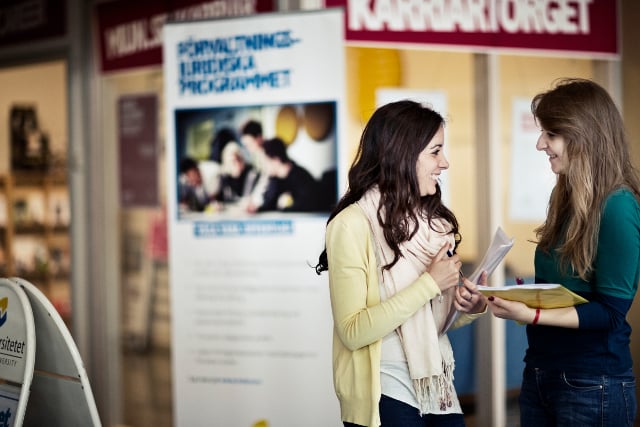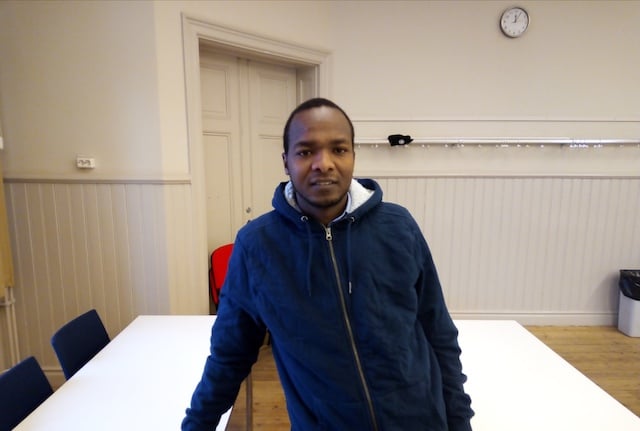Welcome to Sweden!
Chances are you’ve been here a few weeks now and hopefully you’re settling into university life in Sweden without too much trouble.
Still, it’s a lot to take in – new country, new school, new people, new weather – so don’t be surprised if there are things that don’t fall into place straight away.
Realizing the steep learning curve the new crop of NFGL scholars face at the start of the academic year, we decided to consult some experts for helpful hints and advice.
And who exactly are these experts? They are none other than former NFGL scholars who chaired the Local NFGL Networks at their respective universities.
After all, who better to ask for advice than someone who has been through it all.
And being members of the NFGL community, last year’s Local Network Chairs rose to the task and offered quite of a bit of useful advice to incoming scholars.
Here is what they had to say.
Collaborate and brainstorm
Mihretab Abedom Gebreslassie from Karolinska Institutet says collaborating with other local networks for bigger events could have made better experiences and created stronger connections with other scholarship holders. Sergey Redyuk from the University of Skövde agrees, adding it’s the best way to achieve more.
Brainstorming and sharing ideas can lead to better experiences, but collaborating can also make sense from a financial point of view.
“You can redistribute the funds every local network has, as long as these funds are used properly”, Sergey adds.
He also highlights the potential of NFGL Local Networks for personal and professional development.
“Try yourself as a leader, manager, researcher and so forth. You will get an opportunity to develop skills many employers are looking for. Be active, make mistakes, gain experience, improve yourself”.
Stay organized, stay focused
Scholars also emphasize the need to stay organised, not only when planning NFGL events but when managing your studies and personal life.
As Marcela Miranda Francisco from Linköping University put it: “start you first year with some clear ideas of what you are going to do after finishing your master programme. By having this clear picture you can work more towards what will be necessary to reach your goal at the end.”
Focus is essential when starting a new programme in a new country. With so much to do and so many new things to try out, Marcela reminds new scholars to “engage yourself in the extracurricular activities which help you grow in your career and as a person, but always first things first: focus on your studies and be selective considering your abilities and your class schedule.”
Try something new
Extracurricular activities are important for a good work-life balance, and can help personal and professional development.
“Undoubtedly, your time in Sweden will be quite busy with a lot of classes, group projects, trip planning, fika and so on. Yet, don’t hesitate to take a new challenge, to try something new, to arrange an event that promotes and contribute to you and your stakeholders,” says Anup Banerjee from Jönköping University.
“Explore the vast NFGL network, engage and experience what it means to overcome fears and how to lead something in such a global setting.”
Learn Swedish
Scholars also highlighted that learning Swedish helps, and not only at fika.
“I would have started to study Swedish even before coming to Sweden,” says Marcela. “It’s really important to know the language to better integrate into Swedish society.”
But if you didn’t learn Swedish before coming, try SFI (Swedish for immigrants) classes.
“I advise all to first register for a personnummer at Skatteverket and then signup for SFI classes for free. It is good and it is intense (15 hours in a week), but they also have other options”, says Orhun Gündüz from Gothenburg University.
Don’t be shy: meet locals
Learning Swedish also helps you meet local people, and get engaged in different activities, such as volunteer work.
“Sweden is a heaven for that. There are a lot of organizations and that also gives you a large range of contacts”, says Orhun.
And when approaching companies and organisations in Sweden, don’t be shy, says Anup.
“In the beginning, I always had the impression that one should approach a company via email, expect a reply within a week and follow the direction provided in the email. Back home, I barely saw anyone calling directly to the manager of a company and exploring the opportunity to arrange a project or event together,” he explains.
“However, working with NFGL, I have learned that making a call to the person whom I had sent an email is always welcomed here, provided I have followed the formal procedures. Even interestingly, I have found this kind of discussions often open new opportunities as both parties can share their interests and purposes at the same time.”
Embrace student life
But most of all, don’t forget to enjoy all the perks of being a student in Sweden. Orhun explains he wishes he knew that “being a student union member gives you an extra months in the SGS dormitory queue at Gothenburg University”, so keep an eye out for opportunities for students!
You can also check out sthese tips for getting the most out of your time as a student in Sweden for getting the most out of your time in Sweden.
Välkommen!



 Please whitelist us to continue reading.
Please whitelist us to continue reading.